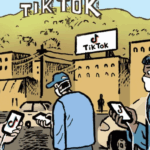 While the VC well has runneth dry for many of the middlemen of ad tech, the cash is still flowing for companies focused on the cross-device space, mar tech, artificial intelligence and mobile marketing automation.
While the VC well has runneth dry for many of the middlemen of ad tech, the cash is still flowing for companies focused on the cross-device space, mar tech, artificial intelligence and mobile marketing automation.
Flowing with caveats, however.
“It’s not that capital has dried up, but rather that investors are being more deliberate in their choices,” said Kamakshi Sivaramakrishnan, CEO and founder of cross-device company Drawbridge, which raised a $25 million Series C round in early May.
Sivaramakrishnan noticed a palpably different experience between that round and the somewhat more frenzied vibe in 2013, when Drawbridge raised its $14 million Series B.
“There’s far more diligence around financials now and a growing sense in the investment community that it’s not about growth at any cost,” Sivaramakrishnan said.
Investors – VCs, angels or otherwise – are looking for businesses with room to grow and a clear value prop. Ad tech 1.0, in other words, is on the express train to commodityville. The mobile SSP space, for example, has already gone through the familiar cycle of innovation followed by stagnation or a sale.
The notion that money has completely dried up, though, “is total BS,” said Chris Cunningham, CRO of Unacast, a Norwegian startup that aggregates beacon and sensor data that raised $5 million in early May.
“‘That’s just a way of saying, ‘We don’t invest in companies that have zero differentiation,’” said Cunningham.
Too Many Cooks
But for the me-toos of the last several years – undifferentiated SSPs, DSPs, ad networks and exchanges – it’s pretty much the end of the line. The same goes for point solutions that haven’t been able to evolve or pivot to meet the needs of an evolving landscape.
“What we’re seeing now is that companies that had the vision but lacked the strategy and experience to execute are shutting their doors,” said Momchil Kyurkchiev, CEO and co-founder of mobile marketing automation startup Leanplum.
On the other side of the fence, however, is growing “VC interest in automation, mobile marketing and tools that intelligently manage volumes of data for marketers,” said Kyurkchiev, pointing to the VentureBeat prognostication that mar tech investment will increase from $2.87 billion in the first quarter of 2015 to $3.8 billion in Q1 of this year.
For its part, Leanplum closed an $11.6 million Series B in August. A number of other companies in the mobile marketing automation space – software companies that help automate marketing processes like push notifications, in-app messaging and CRM management – have also successfully raised rounds within the last year and change, including Localytics ($35 million) and Urban Airship ($21 million) in March; Kahuna ($45 million) in August; Swrve ($30 million) in November; and Appboy ($20 million) in May.
The fact is that the prevailing narrative around the ad tech funding drought is a bit too facile, said Michael Katz, CEO and co-founder of mobile data platform mParticle, which announced its $15 million Series A in January.
“When people think about ad tech, they generally think about where ad tech has been, and that whole part of the ecosystem has already been invested in and optimized right up to the margin,” Katz said. “There’s not a ton of room for improvement around the idea of using data to improve creative and media. But there’s a big industry out there.”
That’s why legacy ad tech has felt the burn. Think of old ad networks and buying platforms, many of which went public and marred the industry with their lackluster performance.
The public markets haven’t been all that kind to the likes of Rocket Fuel, YuMe, Sizmek, Tremor Video and Millennial Media (before it was bought by AOL). And while others like Criteo, Rubicon and TubeMogul have certainly had their ups, they’ve also had (and in some cases are in the midst of having) their downs.
Even Criteo, for a long time the industry’s shining example of public market success, isn’t seeing its stock do as well as it has in the past.
While investors might not “get” ad tech, companies have to take responsibility for the way they position themselves.
“You really have to be able to say, ‘Here is my differentiated story’ and ‘This is why publishers will find this valuable’ or ‘This is why a large, strategic acquirer will pay a premium on my asset,’” said Jim Payne, founder and former CEO of Twitter-owned mobile ad exchange MoPub. Payne officially left Twitter last year to found a mobile startup incubator called MoLabs.
Impending IPOs from AppNexus and The Trade Desk – both are expected to submit their S-1s in short order – could press the investor sentiment reset button if they perform well.
“That’ll be good for the space in general,” said Payne, who’s personally invested in a number of New York City-based a tech companies, including mParticle, bidder tool Beeswax and people-based data marketplace Arbor.
Fresh Blood
Though some ad tech sectors are seeing VC dollars, many high-profile investors like Andreessen Horowitz religiously avoid ad tech, scared off by unpredictable revenue, fraud issues, questionable deals at the agency level, black boxes and a lack of transparency.
“That said, innovation is innovation, and there are companies out there providing new and interesting solutions that might officially fall into the ad tech bucket but don’t look like the legacy solutions that came out over the last 10 years,” Katz said.
Simply put, “if you sell ‘media impressions,’ you’re in trouble,” said Cunningham, but SaaS players and “data-first” tech providers that help empower brands to better use their first-party data are companies to watch. VR and AR are also getting attention.
And mobile, of course. Innovation in the mobile space is fast and furious. Even so, investors are cautious.
“A few years ago it was easy to say, ‘Hey, I’m doing a mobile version of X’ and financing was forthcoming – the same is true for a lot of companies saying, ‘Oh, we’re doing programmatic X’ – and then the rising tide lifts all boats for a time,” Payne said. “But people feel burned by that simplistic narrative.”
As a result, the purse strings are tighter and investors are a little more circumspect. That’s not a bad thing, though, said Mark Ghermezian, CEO and co-founder of mobile marketing automation platform Appboy.
“Correction is always healthy and consolidation is always natural,” Ghermezian said. “There’s a lot of BS out there and the market needs to squeeze it out. I mean that in the nicest possible way.”














